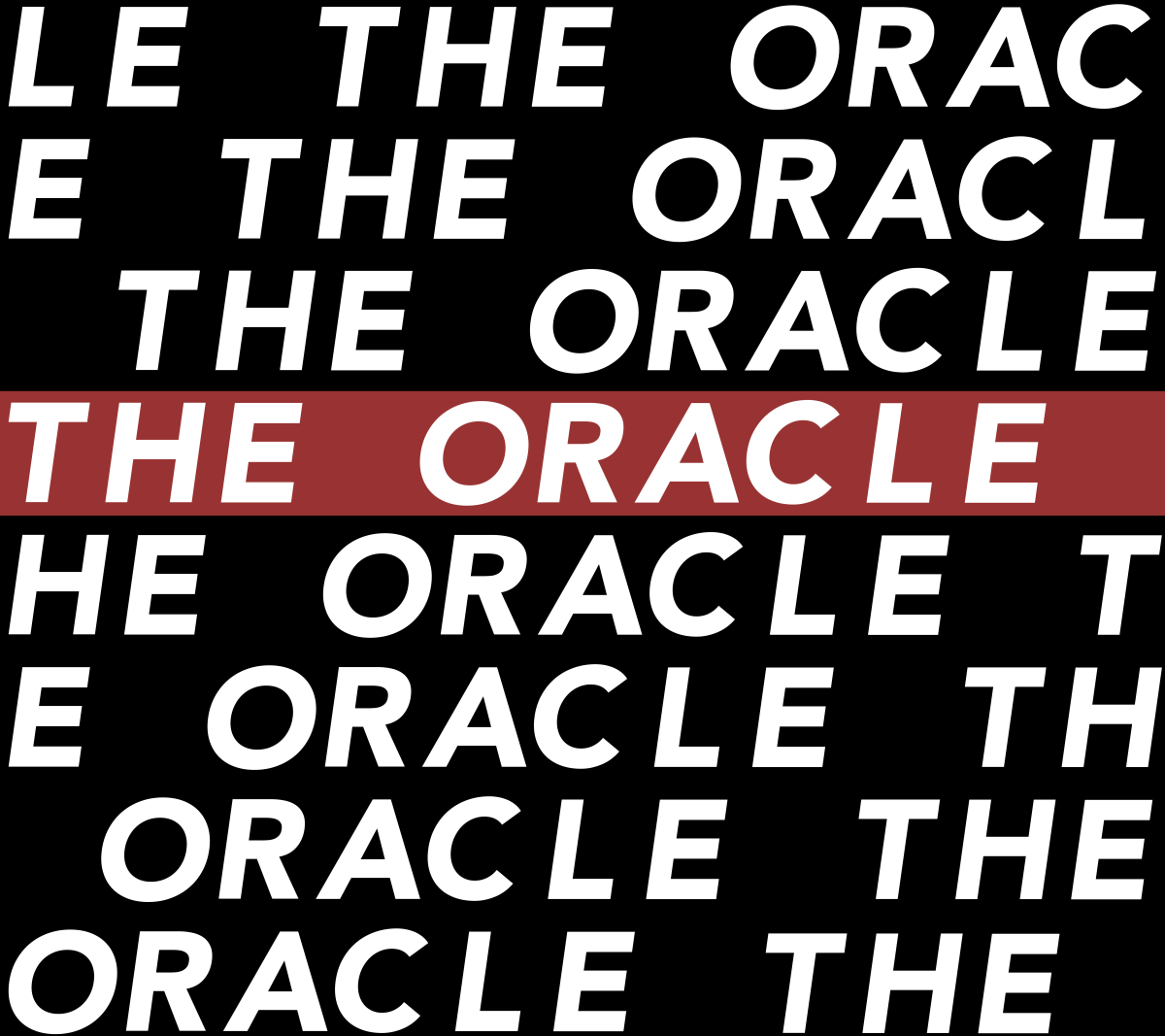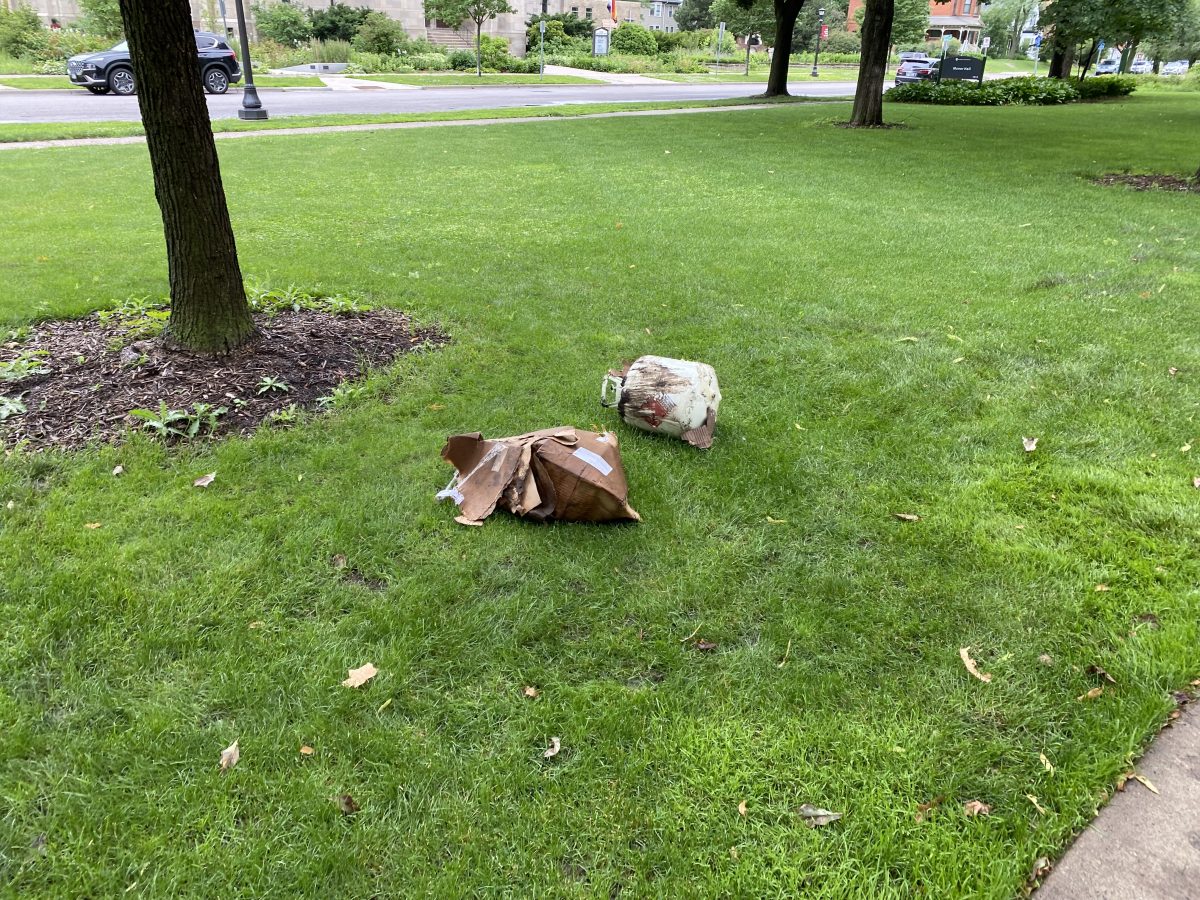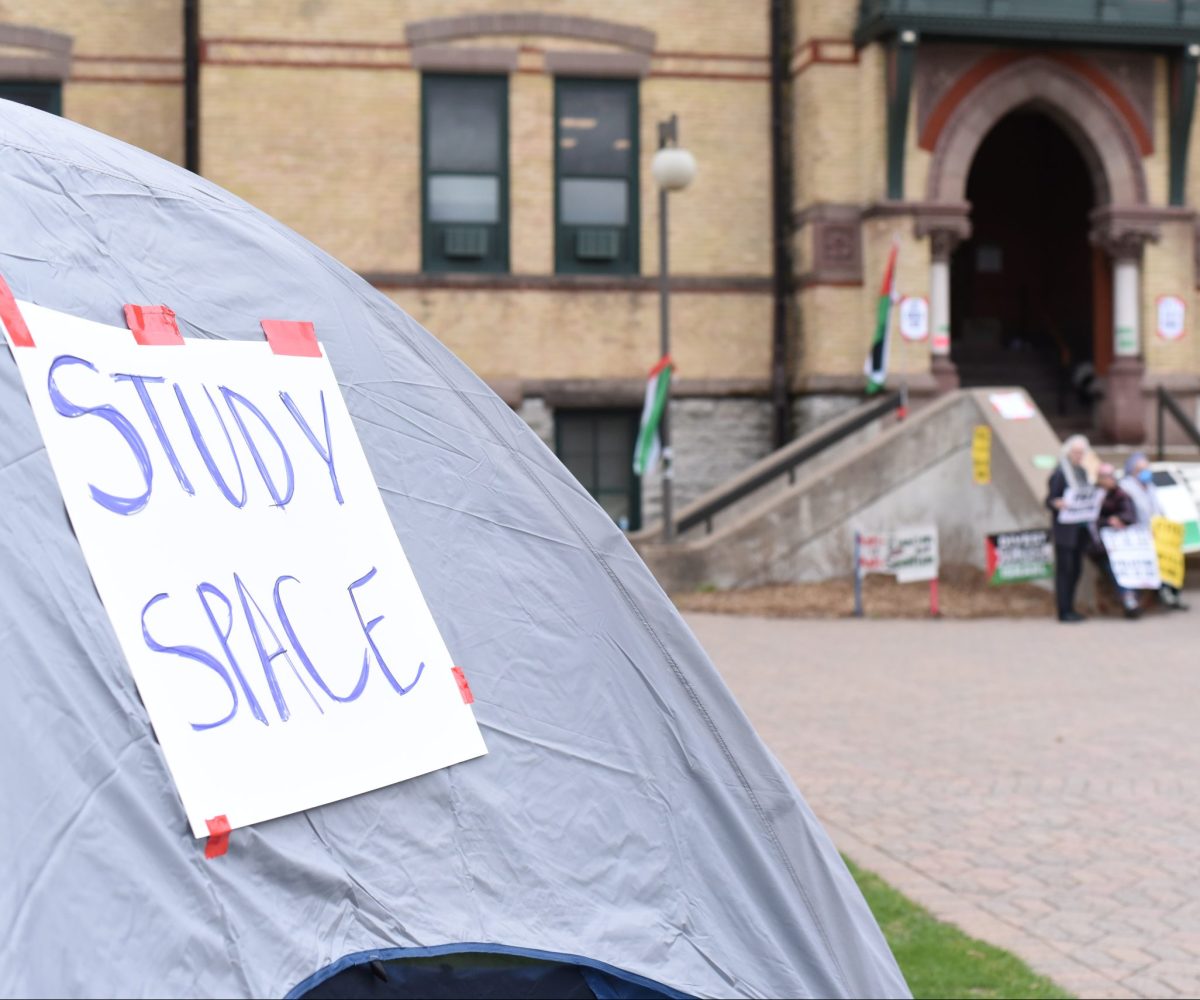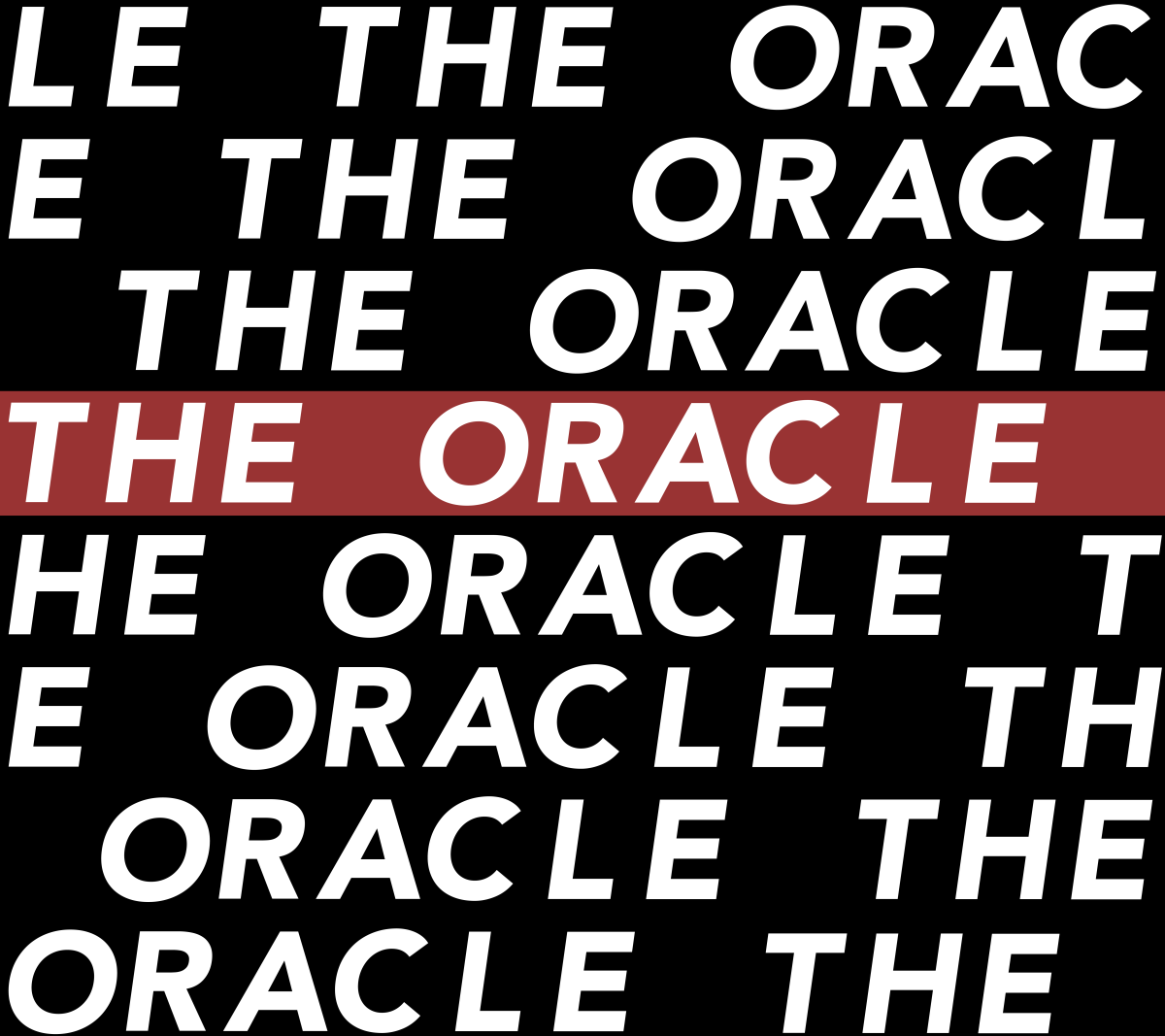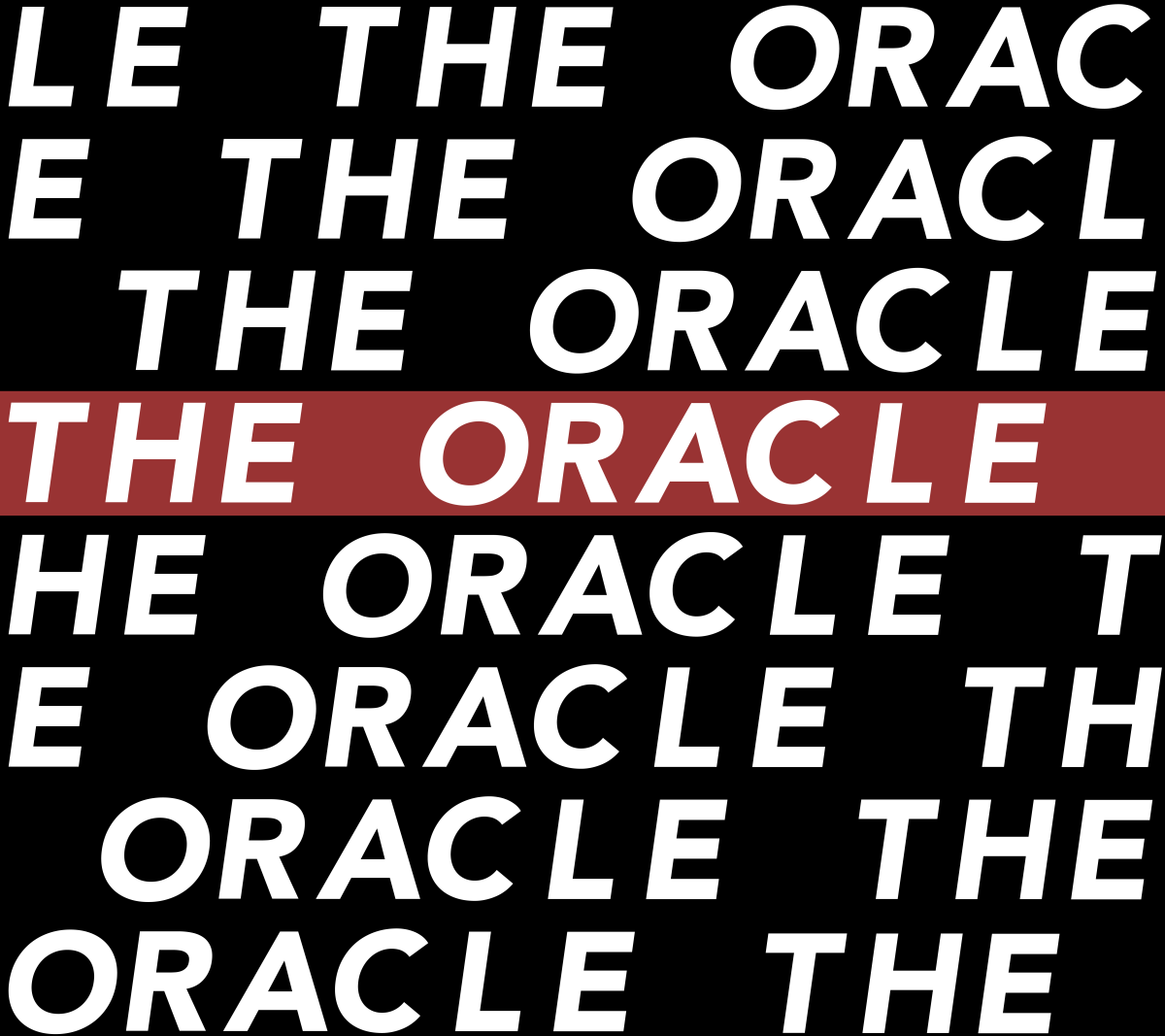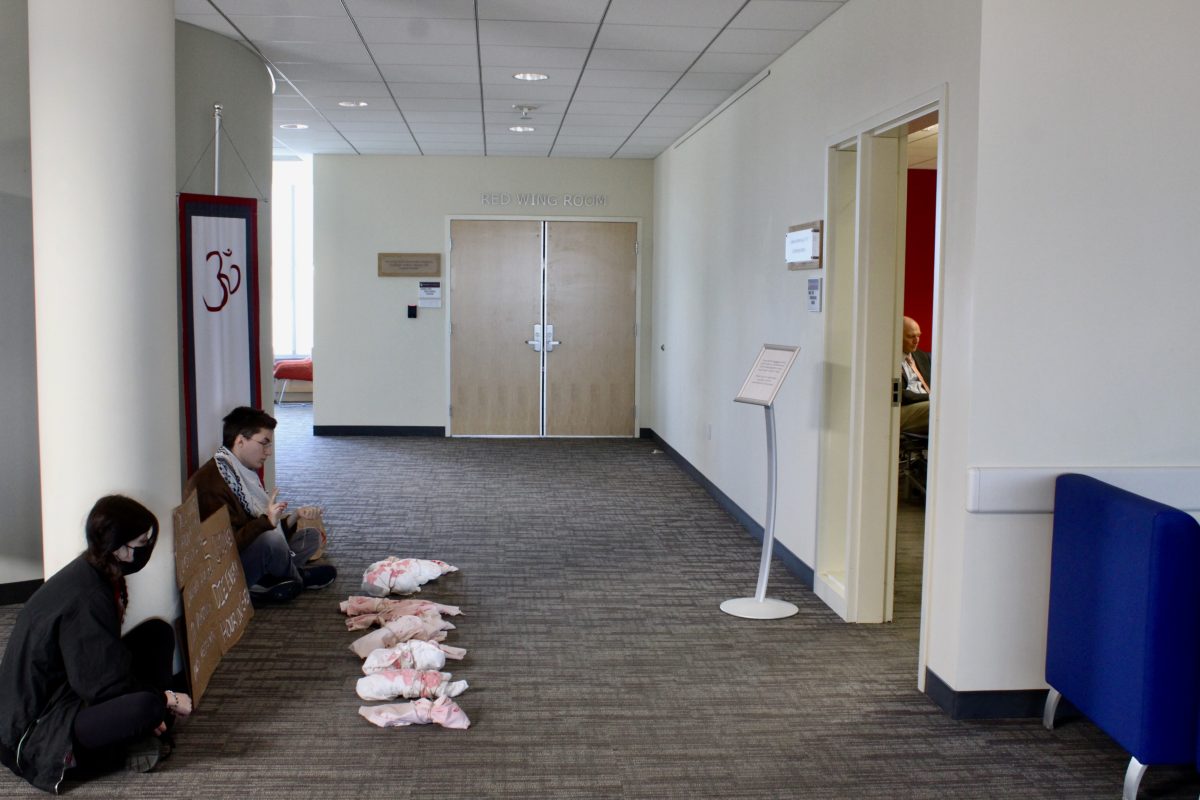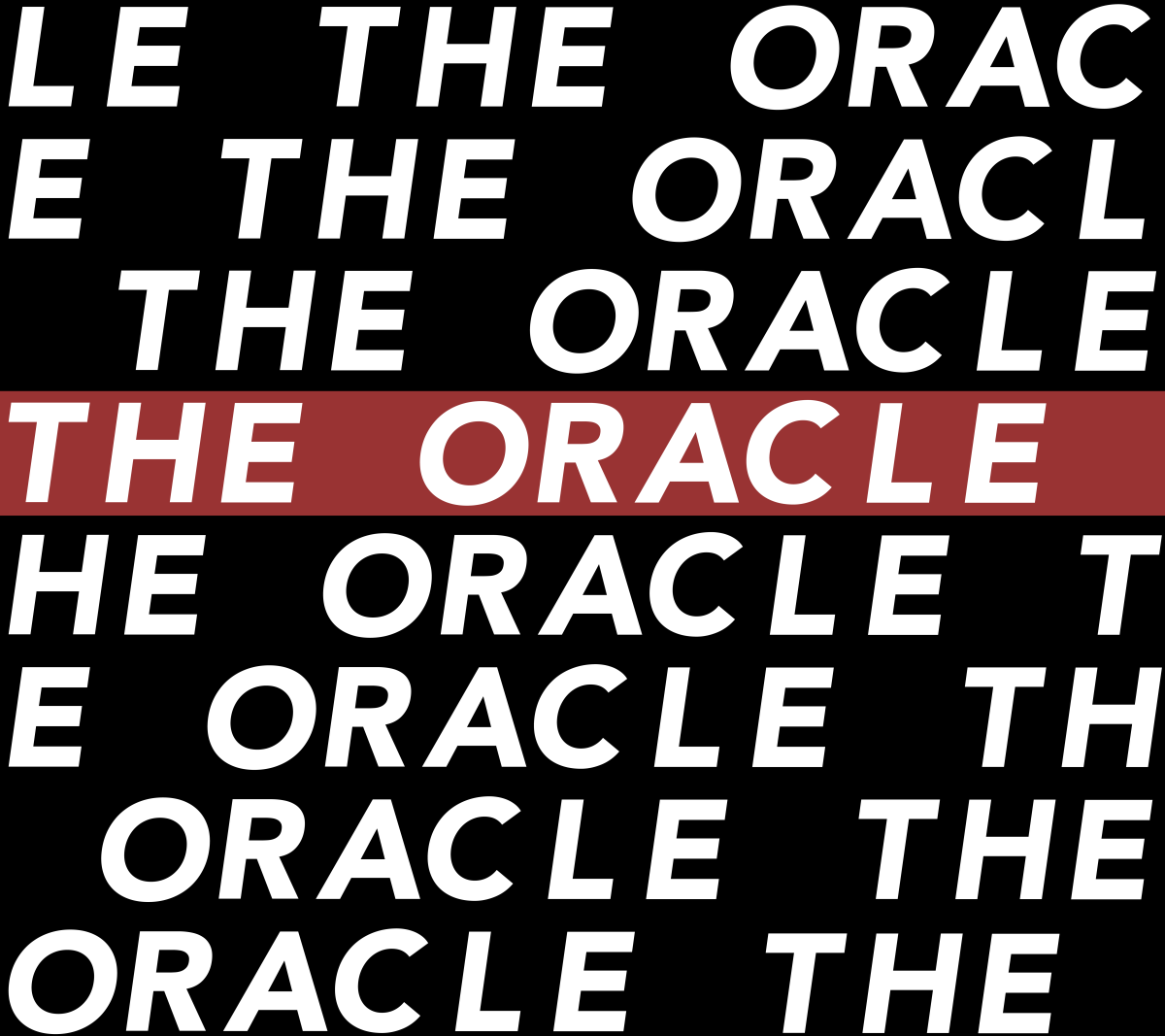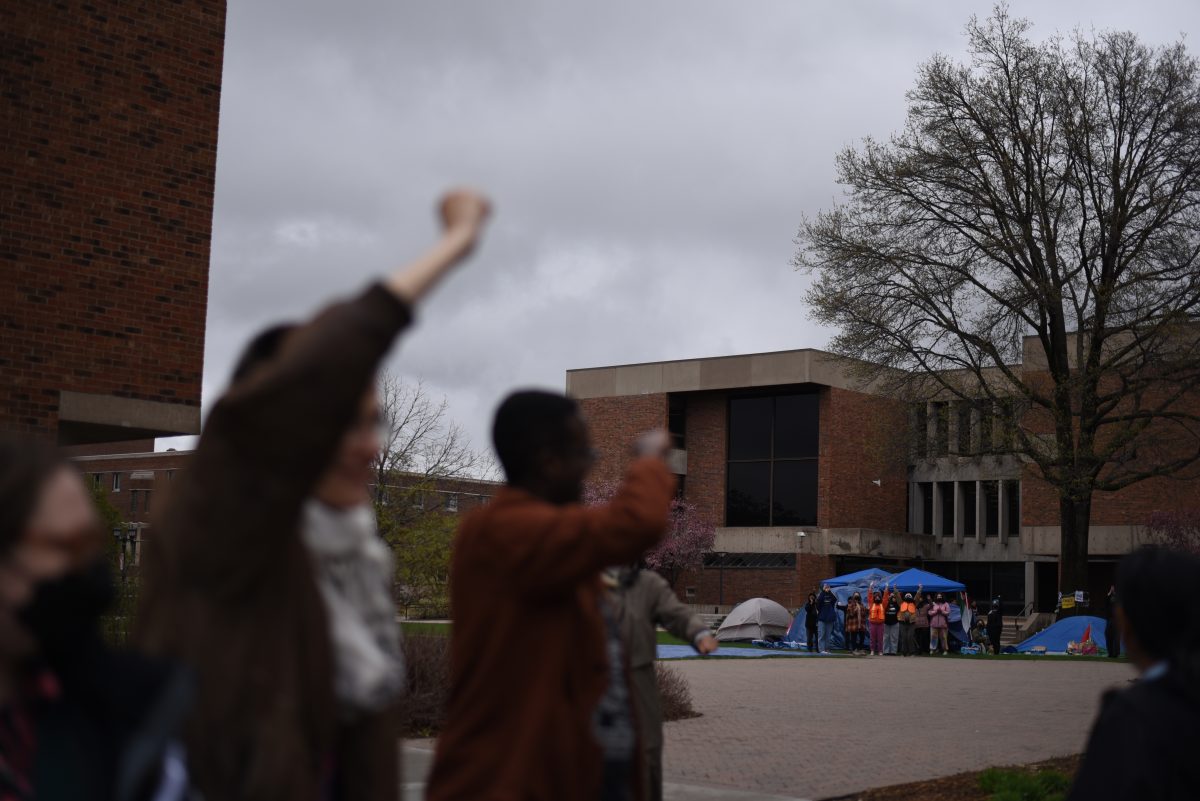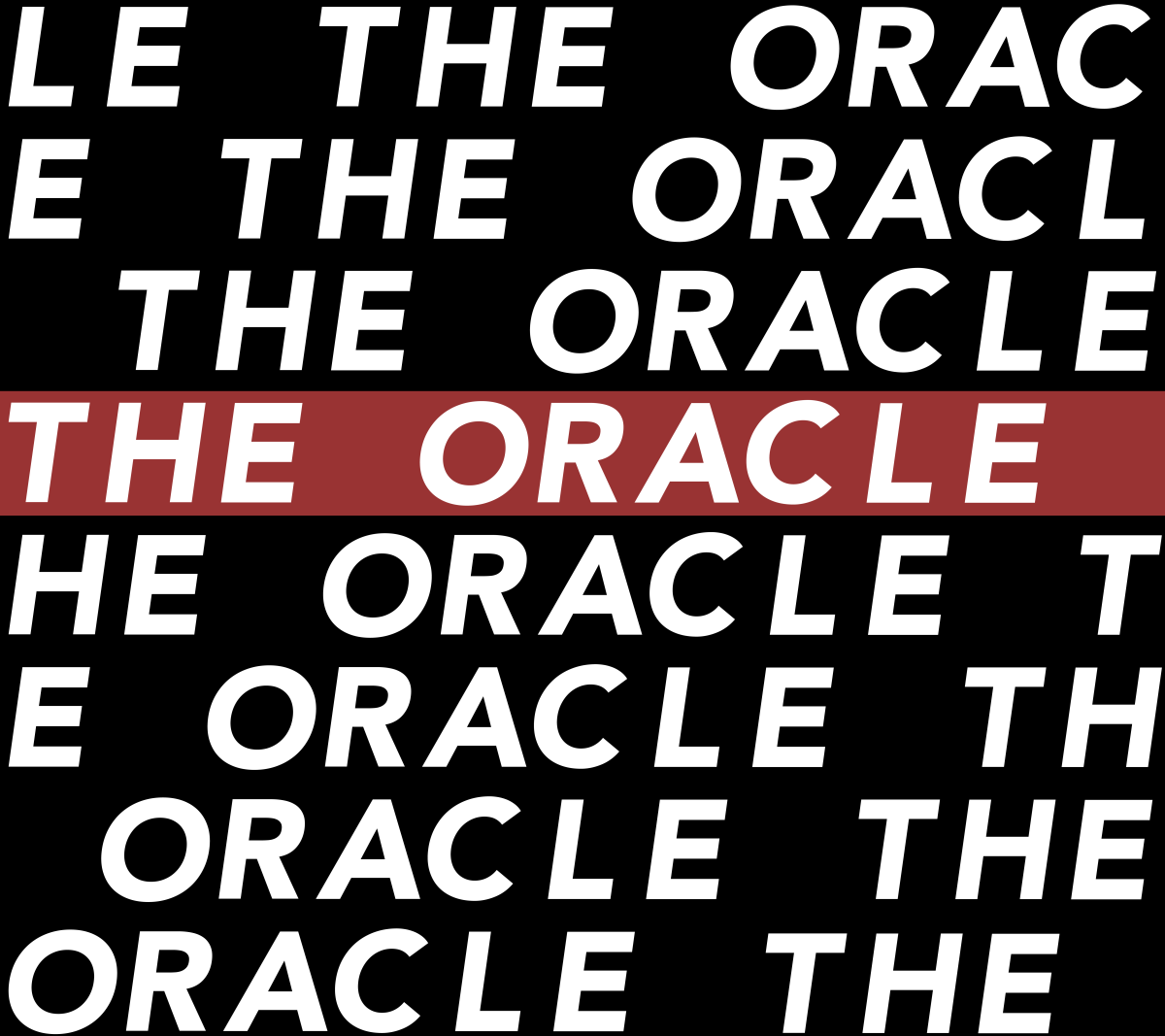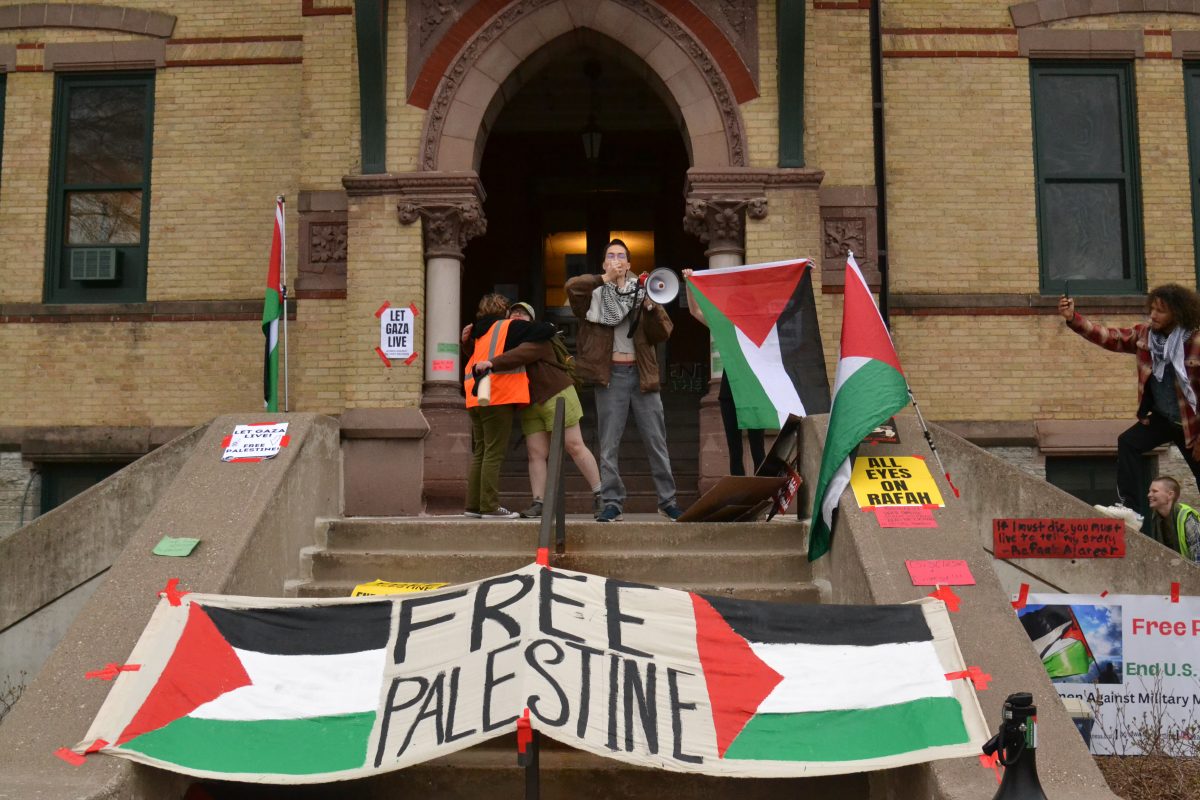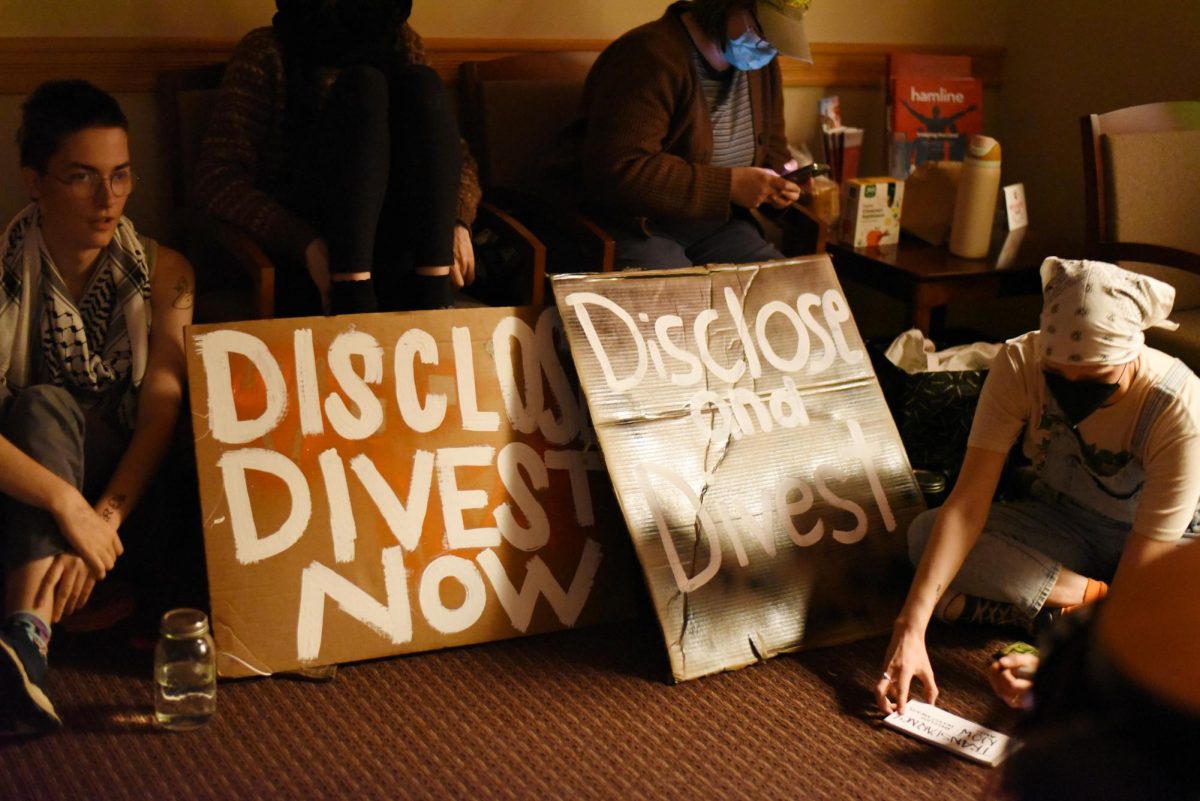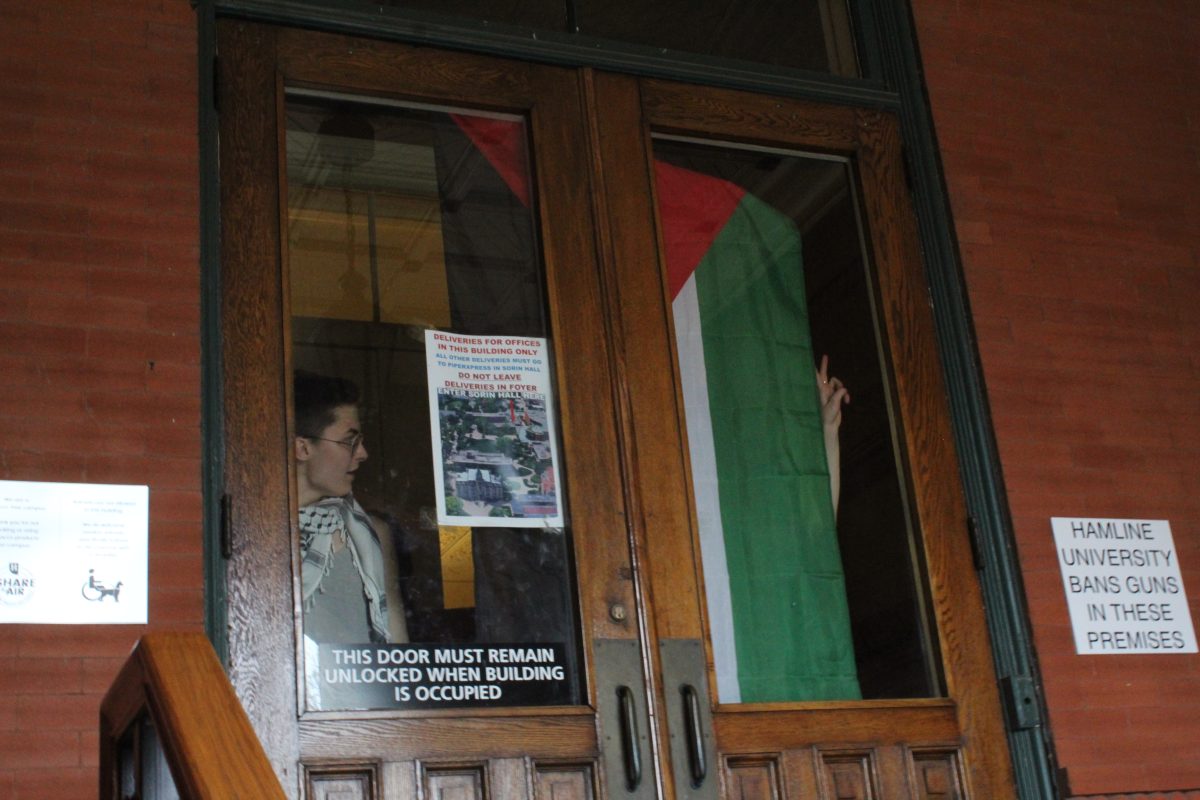Hamline Day of Reading returned to campus with a panel of Diversity, Equity and Inclusion educators and books celebrating and platforming transgender and non-binary identities.
The event was inspired by the Human Rights Campaign’s National Day of Reading, a day that schools around the nation can participate in to celebrate stories that “support transgender and non-binary youth.”
The event held on March 19 was a collaboration between The Center for Gender + Sexualities (CG+S), The Hamline School of Education and Leadership’s (HSEL) equity and social justice committee and the Hamline University Programming Board (HUPB).
Molly Doran, the graduate advisor for advanced degrees and certificates at Hamline was one of the head organizers of the event. Doran felt the Day of Reading event was important to bring back to Hamline because of the social and political climate for transgender and non-binary youth.
“Students who see themselves represented in literature can feel validated and have their experiences normalized,” Doran said in an email. “It’s also important for educators and other learners to be better informed so they can be an active part of creating an inclusive culture at school and in their communities.”
Crystal Camacho, the program assistant for CG+S was another key organizer for the Day of Reading after Molly Duran reached out to CG+S to collaborate on the event. Camacho hopes that as an institution of education, Hamline can be a place for people to learn about and uplift transgender identities in a safe space.
“I think our community can really greatly benefit from conversations about, and with, trans[gender] identifying people themselves about what their experiences are like, what we can do to be allies,” Camacho said. “I think we should also be giving students more appropriate spaces to ask the questions that they want to ask, and for us to have conversations with them so that way we can hopefully help avoid more conflict down the line.”
Camacho also emphasized that while holding events like Hamline Day of Reading, and other events celebrating queer identities is important, often the turnout to the events reflects demographics who have the least amount of learning to do.
“Unfortunately, a lot of times with these events, I always say the people who could benefit from it the most don’t go,” Camacho said.
The panelists for the event included alumnus Jason Bucklin, the LGBTQ education specialist at the Minnesota Department of Education; alumnus Carlos Stewart, a teacher at Hamline Elementary and Jinger Gustafson, the director of the Administrative Licensure Program at Hamline. The Senior Diversity, Equity and Inclusion Coordinator for the city of Minnetonka and alumnus Jayce Alexander was also included in the panel through pre-recorded responses.
Each panelist was chosen for their experience as Diversity, Equity and Inclusion (DEI) educators in addition to their connections to Hamline. The panelists in turn described how their identities shape their work, and how they approach education because of their experiences.
“When I think about my experience as a trans[gender] man and how it’s impacted my ability to show up in educational spaces, I use it. I use it to educate, I use it to help advocate, I use it to help people see that you can show up in your full confidence … to me that’s the important part of showing up,” Alexander said in a pre-taped response.
Buckley spoke about how he navigates privileged identities in DEI work and why unlearning is a difficult but important element.
“For myself as a white, gay male, and those are the three identities that when I walk into the room tend to show up, I have to think about what’s in this work of racial equity and gender justice and equity work for me personally, what’s at stake for me, and part of it is also about an opportunity to reconnect to my own humanity,” Bucklin said. “When you’re inculturated as a white person, you are asked to witness a lot of dehumanization and not react to it. The only way to witness dehumanization and not react to it is to dehumanize yourself, so this equity work is really about a continuous journey of unlearning and relearning and continuing to walk back to where I think we all started from.”
Buckley also shared that the fuel behind his passion for both DEI and educational work has changed over the years, and continues to change as he does. Stewart agreed that his perspective as an educator has changed over the course of a career, and spoke on the panel about how being a Black man raised in a predominantly Black neighborhood before moving to Minnesota, and also how being raised by Black women have informed his role as an educator.
“As I get older I’m like, I didn’t choose education, education chose me. These young folks, they were like, we need you,” Stewart said. “We need you here to tell us your story, and also for you to help us navigate this, this wicked world, to help us to validate how we feel and that our emotions are real, to really talk to young black and brown boys about that it’s okay to cry, it’s okay to be sensitive, it’s okay to have this softness to you.”
As Molly Doran reflected on the event, she noticed that while all the panelists have built strong careers in education, societal reactions to their identities threatened their success at some point or another.
“Each person has a unique story and personal experiences. It was clear from the panelists that they each had champions who supported them and helped them see possibilities they may not have imagined for themselves,” Doran wrote in an email. “It was also clear that some educators said and did things that could have deterred the panelists from pursuing careers in education solely because of their identities.”
Crystal Camacho worked with Information Literacy & Collection Development Librarian Kimberly Feilmeyer to curate the books for the event, and found Being Emily by Rachel Gold, George by Alex Gino, Gracefully Grayson by Ami Polonsky and Kings of B’more by R. Eric Thomas.
“These are just books that are hopefully telling kids, ‘Just be who you are. Honor that. Know that you are worthy,’” Camacho said.
Educators discuss identity
A panel discussion spoke about the importance of representation in and outside-of-the-classroom at an event uplifting genderqueer storytelling.
March 26, 2024
Story continues below advertisement

